How to Get Mice Out of Your House
11 Things Mice Don't Want You to Know
As cold weather approaches, so do mice. Find out these secrets about the rodents to keep your home from getting infested.
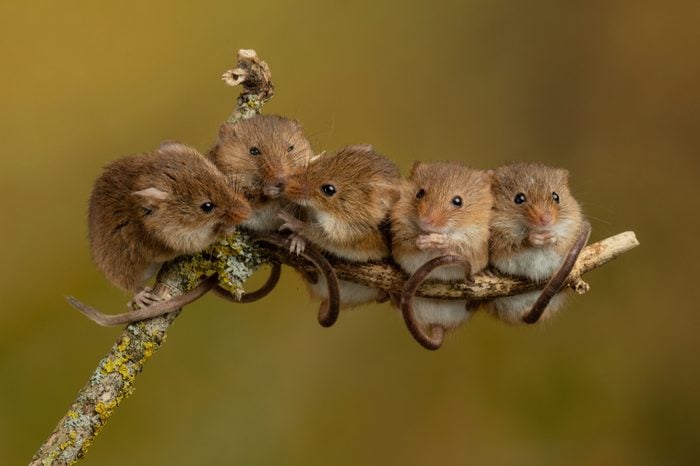 Captivelight/Shutterstock
Captivelight/Shutterstock
We're followers
Mice are always on the hunt for non-threatening spaces that radiate warmth. Like humans, we seek out food, water, and shelter. So when we squeeze under the garage door of a suburban home during the first cold snap, we will usually lay down a trail of urine filled with pheromones that are like perfume to other mice. "The more they lay down, the stronger the scent becomes," says urban rodentologist Robert Corrigan, author of Rodent Control: A Practical Guide for Pest Management Professionals. "Sooner or later, the mice of the area say, 'the house on Jones Street is being used by my community, I should try it too.'" Here are 15 signs your home is about to be infested.
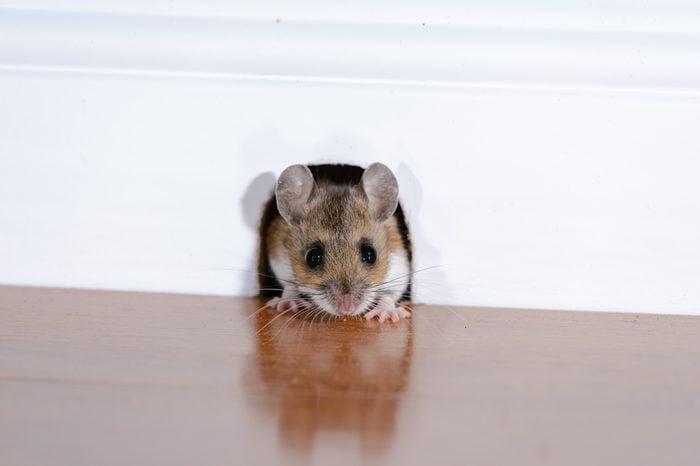 John E Heintz Jr/Shutterstock
John E Heintz Jr/Shutterstock
We're flexible—but not that flexible
We can squeeze into some pretty small places, but we have a backbone and a skeleton just like other mammals. Our skulls typically measure about six millimeters high—about the size of a dime. If we can fit our heads under a door or through a pipe, our backbones are flexible enough that we can "do the limbo the rest of the way through a six-millimeter hole," Corrigan says.
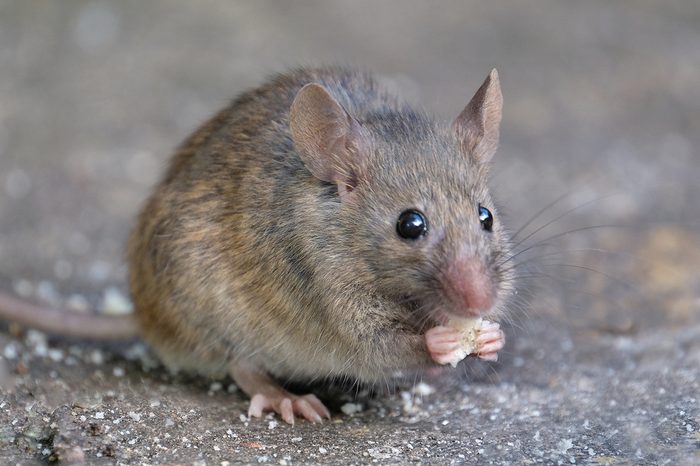 Paul Broadbent/Shutterstock
Paul Broadbent/Shutterstock
Cheese isn't necessarily our favorite food
The cartoon Tom and Jerry may have immortalized the idea that cheese is our favorite food, but we'll nibble anything you leave out for us. "That might mean a piece of cheese that fell off the counter," says Chelle Hartzer, a technical services manager for Orkin and a board-certified entomologist. "Or it could be some blueberries that you left out. Really anything that they can get access to." In fact, we like variety: We'll also nosh on cockroaches—a great source of protein—and we have a taste for chocolate too. Learn the 13 secrets about bugs, pests, and rodents.
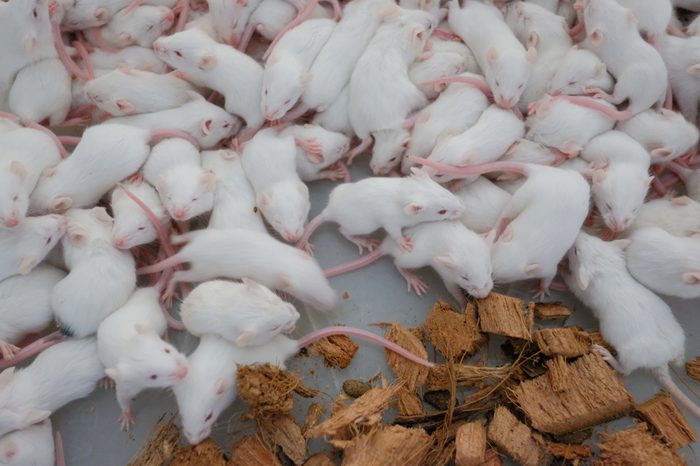 Hand Robot/Shutterstock
Hand Robot/Shutterstock
We're big breeders
If our bellies are full (we only need one-tenth of an ounce of food every 24 hours), we're going have lots and lots of little mice. Female house mice produce between six and eight pups per litter, Hartzer says. And we can do that between five and ten times a year. With mice reaching maturity within six weeks, it's not hard to imagine how quickly a litter can turn into an infestation. Find out which U.S. city has the most rats.
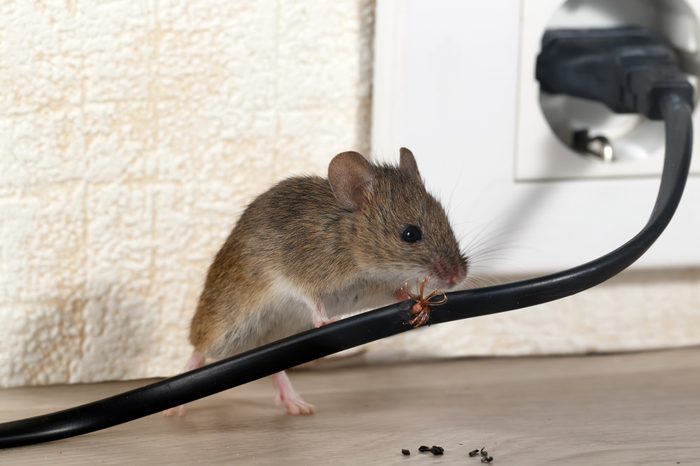 torook/Shutterstock
torook/Shutterstock
We can wreak havoc on your wiring
The word "rodent" comes from the Latin for "to gnaw." That's what we love to do—whether it's the electrical wiring in your car or the gas lines inside your house. "It can also shut down the appliances in your kitchen, every dishwasher repairman will tell you that," Corrigan says. The damage can be dangerous: gnawing the wrong wires in your attic, say, could cause a short and spark a fire.
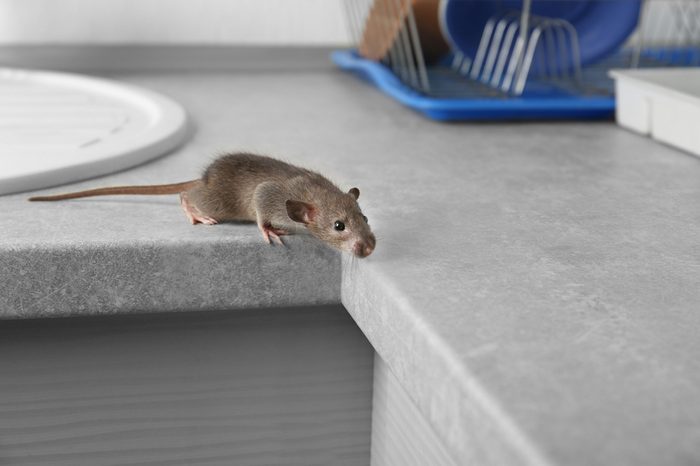 Africa Studio/Shutterstock
Africa Studio/Shutterstock
We may be carrying some nasty germs
Slinking around dirty places like alleyways, crawl spaces, ditches, and sewers means we're likely to pick up some scary, antibiotic-resistant germs. Researchers from Columbia University trapped hundreds of mice in apartments around New York City and released their results earlier this year. "We found that these so-called ordinary looking mice out there were carrying four of the most important germs associated with food-borne illness," says Corrigan—C. difficile, E. coli, Shigella, and Salmonella. Wild mice can carry up to 35 diseases, according to Terminix. So when we are skittering across your countertops, "it's not just a little mouse in the house. It can be a potential health risk."
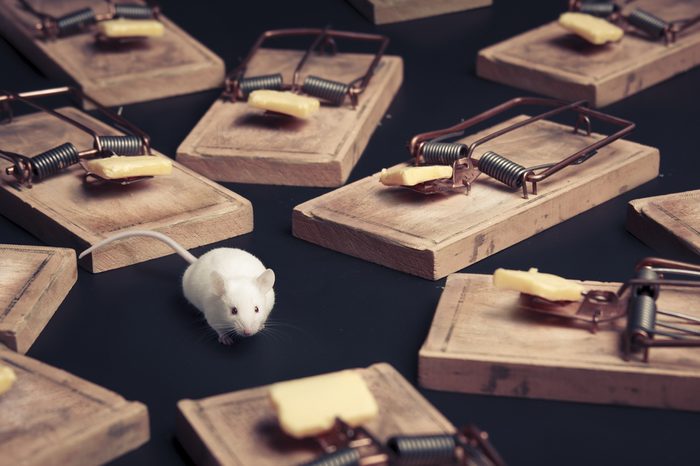 Fer Gregory/Shutterstock
Fer Gregory/Shutterstock
We have different risk levels
Just like humans, we count both daredevils and nervous Nellies among our ranks. When a female mouse gives birth to a litter of five pups, there will likely reflect that variation. "Some tend to take chances, like 17- and 18-year-olds with new driver's licenses," Corrigan says. "Those are the ones that will get easily trapped." Others of us will skedaddle in the presence of humans, but we can get aggressive if you corner us, according to Terminix.
 Robert Dunn/Shutterstock
Robert Dunn/Shutterstock
We're wary of that trap you set out
Many of us are what's known in the industry as "trap-shy." When you put one out, we might not know that it's a trap, but we're very attuned to the fact that something in our environment has changed. That said, there's plenty of rodent-cam footage of us running around them. So how can you break down our resistance? Corrigan recommends setting out eight to ten traps with dabs of different bait, such as a sprinkle of oatmeal, a little peanut butter, and bacon grease—for three nights. Then after you've trained us to expect food without threat, go ahead and set the traps with the same bait.
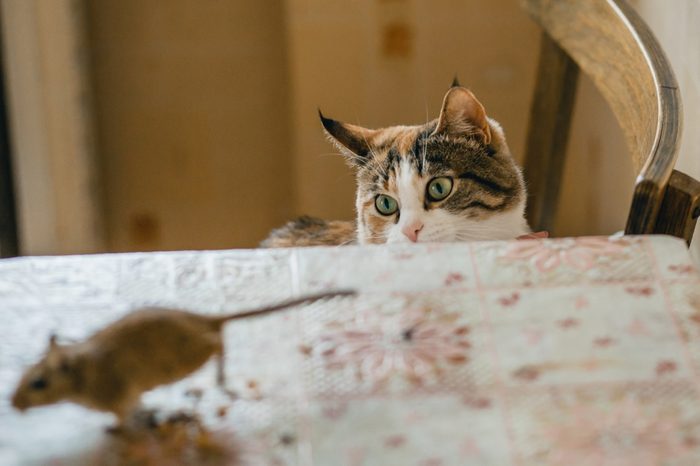 Sergey Zaykov/Shutterstock
Sergey Zaykov/Shutterstock
We get stressed out too
It may seem like life is great for us with lots of crumbs available, plenty of soft places to sleep, and many wires to chew on. But we're constantly scurrying about, afraid we're going to get killed by a dog or a cat or a human or a trap. And we start fighting with each other too. "If they get a full year in, that's a good life for a mouse," Corrigan says. "But usually it's seven, eight, nine months."
 Sergey Zaykov/Shutterstock
Sergey Zaykov/Shutterstock
But cats don't necessarily frighten us
Just like we have different appetites for risk, felines vary in their levels of ferocity. Some cats have zero interest in the hunt, especially if they're well-fed and taken care of. "I saw lots of infestations of mice where people had two or three cats and the mice were thriving on cat food," Corrigan says. But a young male cat that's feeling territorial may quickly dispatch with a mouse that wanders in on a cold November night.
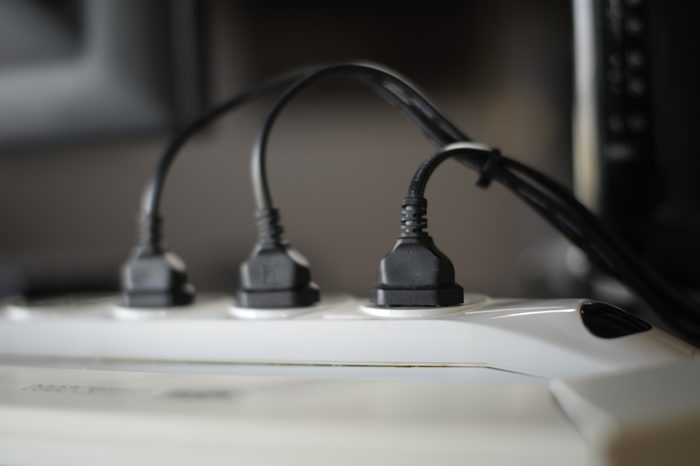 Phonix_a Pk.sarote/Shutterstock
Phonix_a Pk.sarote/Shutterstock
We're not scared by those electronic devices
Those gizmos people are selling online that claim ultrasonic sound waves can scare us away? There's no credible scientific evidence they work. "Homeowners love the idea that they don't need poison, they don't need those yucky traps," Corrigan says. "That I can just plug in this magic machine and it chases vermin out of my house. Well, if it were that simple, we wouldn't need a single pet control professional anywhere in the world." Next, check out these 14 exterminator nightmares that will make you cringe.
Originally Published: August 23, 2018
Sign up for articles sent right to your inbox
Enjoy the best stories, advice & jokes delivered right to your inbox!

Subscribe & SAVE Save Up To 84%!
How to Get Mice Out of Your House
Source: https://www.rd.com/list/things-mice-dont-want-you-to-know/